The Eclipse IoT Working Group has just released a report asking the global IoT developer community to share their perceptions, requirements, and priorities. And with over 1,700 individuals taking the survey between February and March 2019, the key findings are interesting:
- IoT drives real-world, commercial outcomes today. 65% of respondents are currently working on IoT projects professionally or will be in the next 18 months.
- IoT developers mostly use C, C++, Java, JavaScript, and Python
- AWS, Azure, and GCP are the leading IoT cloud platforms
- Top three industry focus areas remain the same as last year: IoT Platforms, Home Automation, and Industrial Automation / IIoT.
- MQTT remains the dominant IoT communication protocol leveraged by developers
- The Eclipse Desktop IDE is the leading IDE for building IoT applications
The last point may be slightly biased because the survey was done by the Eclipse IoT Working Group, so most respondents were already familiar with the Eclipse IDE.
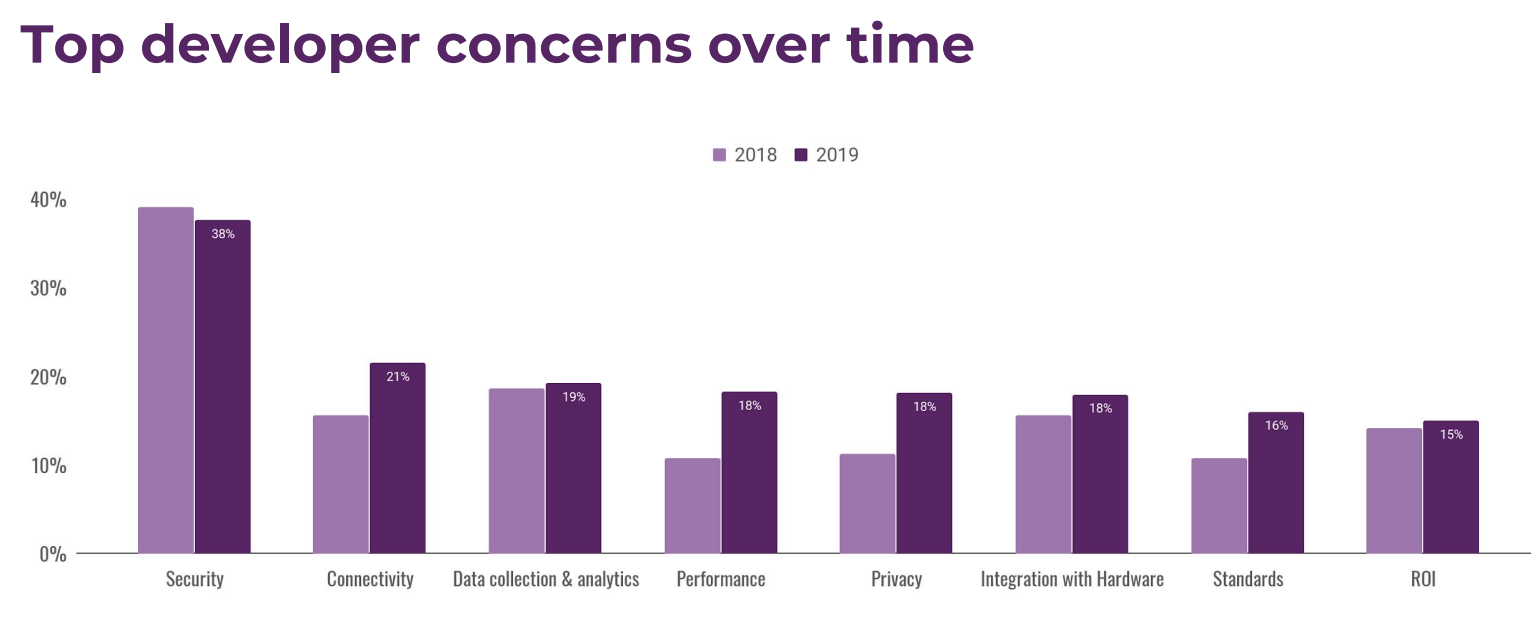 Security concerns dropped slightly compared to last year, but it’s not surprising 38% of respondents list it as a top concern since it’s a problem so complex to solve.
Security concerns dropped slightly compared to last year, but it’s not surprising 38% of respondents list it as a top concern since it’s a problem so complex to solve.
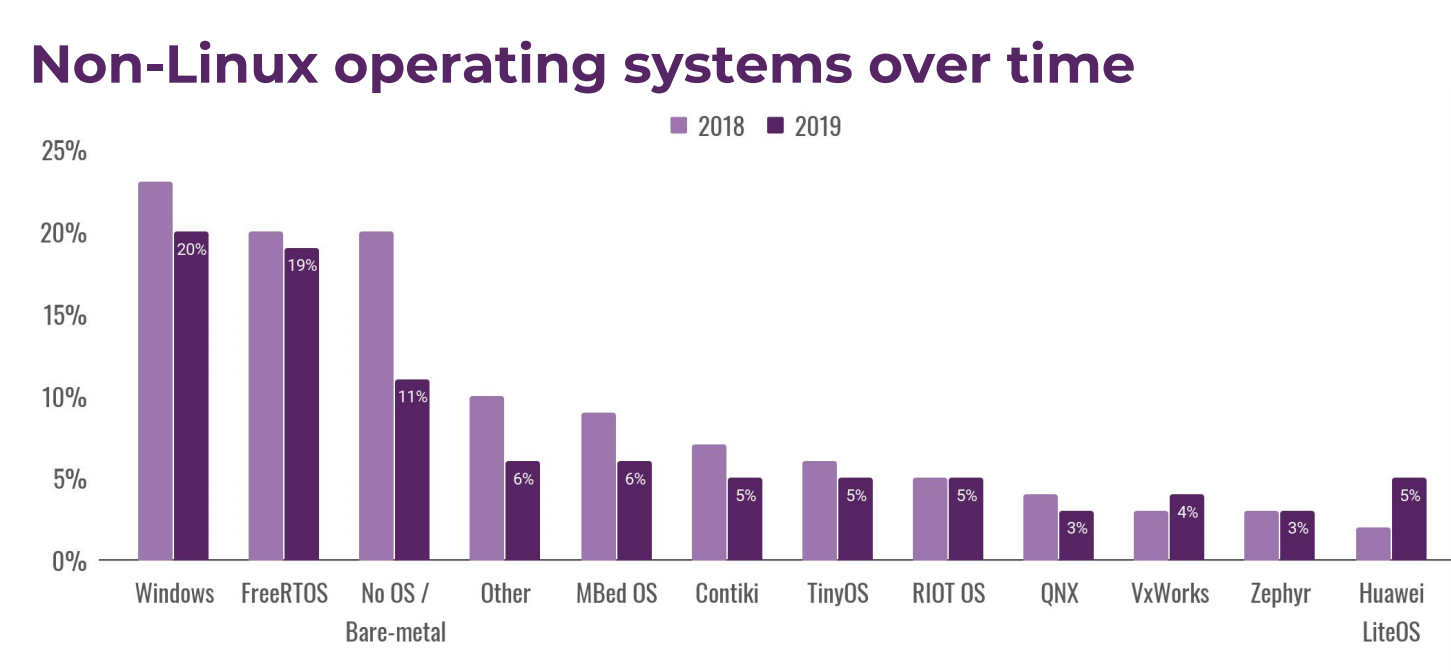
Linux is basically in a world of its own for IoT gateways and edge nodes with 76% penetration, while FreeRTOS dominated for constrained devices. Most non-Linux operating systems experience a drop between 2018 and 2018, especially bare metal programming which dropped from 20% to 11%. The only two non-Linux OSes with a growing market share are VxWorks and Huawei LiteOS. Debian based Linux distributions such as Ubuntu and Raspbian, and even Debian itself dominates the Linux world with at least 30% of respondents picked Debian derivatives for their IoT projects, but the Yocto Project also came strong.
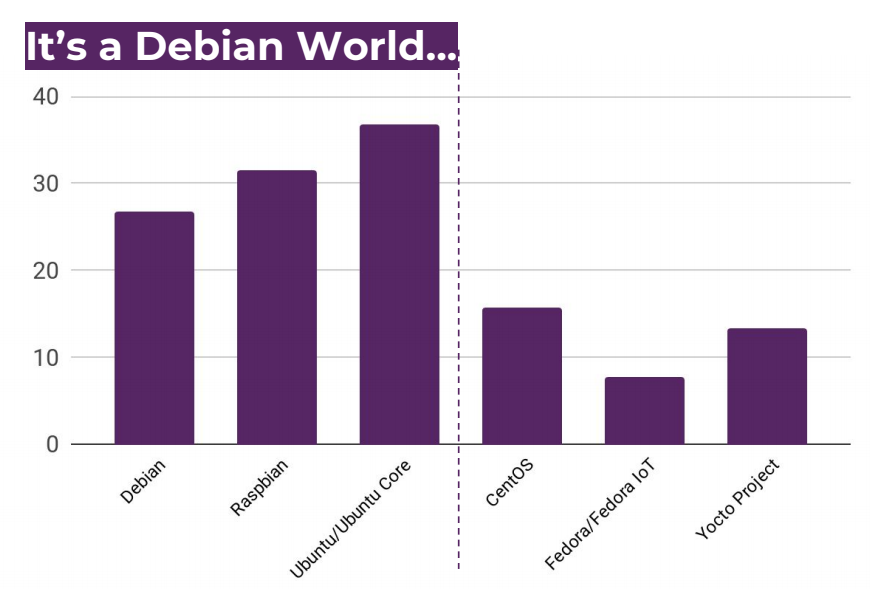 Arm dominated with their Cortex-M MCU class cores in constrained devices, while it’s a bit more spread out for gateways with 70% percent of respondents using Arm, and 42% going with Intel solutions. The total goes above 100% since some respondents simply use both.
Arm dominated with their Cortex-M MCU class cores in constrained devices, while it’s a bit more spread out for gateways with 70% percent of respondents using Arm, and 42% going with Intel solutions. The total goes above 100% since some respondents simply use both.
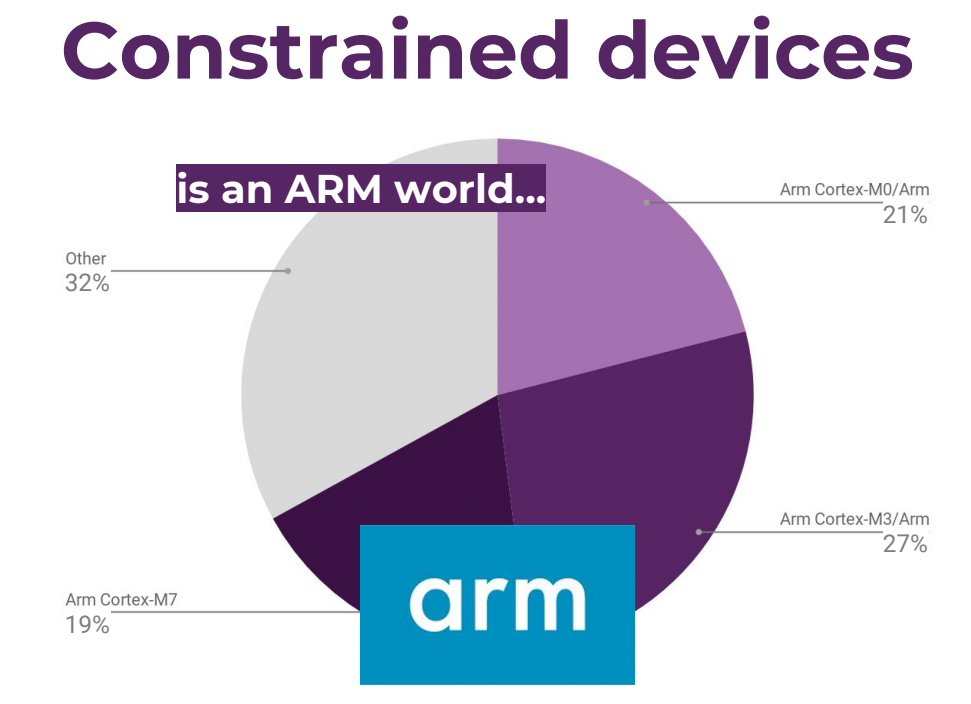 The top three cloud platforms have managed by large US companies with Amazon Web Services (AWS) being using by 34% of respondents, Microsoft Azure by 23% and Google Cloud Platform (GCP) by 20%.
The top three cloud platforms have managed by large US companies with Amazon Web Services (AWS) being using by 34% of respondents, Microsoft Azure by 23% and Google Cloud Platform (GCP) by 20%.
The selected programming language is very much a case of choosing the right tool for the job with C and C++ the preferred language for constrained devices, Java and Python for gateways and edge nodes, and Java and JavaScript for the IoT cloud.
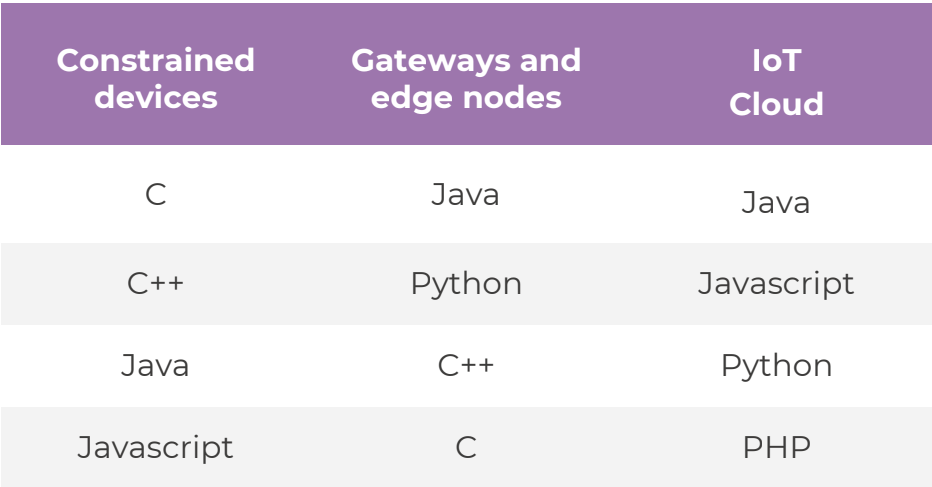
When it comes to communication protocols, HTTP (REST API?) comes first with 49%, following by MQTT (42%) and WebSockets (26%). The answers to connectivity protocols were a bit odd since they mixed “mid-level” protocols like TCP/IP (54.1%) with hardware solutions such as WiFi (48.2%) and Ethernet (41.2%).
You’ll find more details in the announcement, and the survey report (PDF).
Via LinuxGizmos

Jean-Luc started CNX Software in 2010 as a part-time endeavor, before quitting his job as a software engineering manager, and starting to write daily news, and reviews full time later in 2011.
Support CNX Software! Donate via cryptocurrencies, become a Patron on Patreon, or purchase goods on Amazon or Aliexpress




